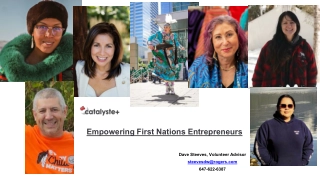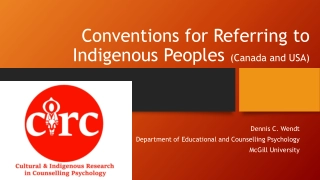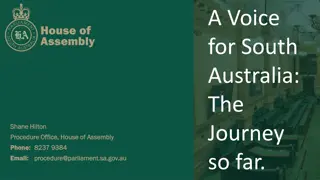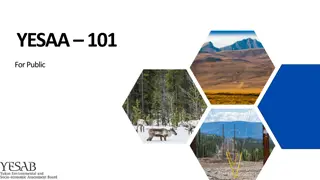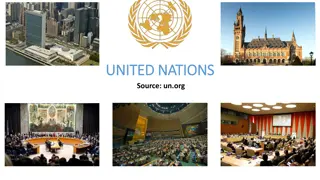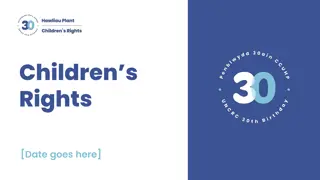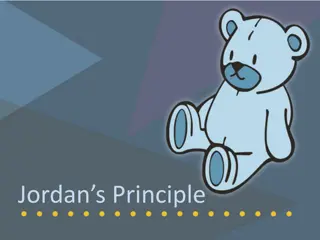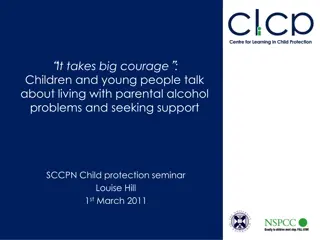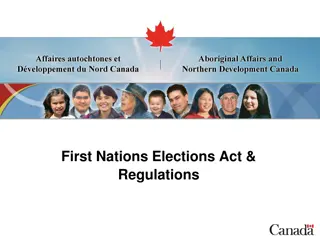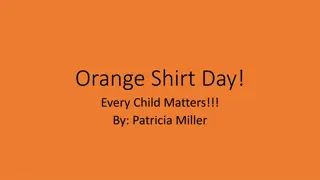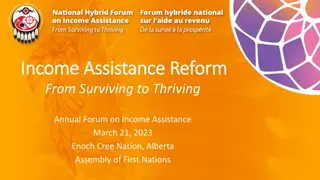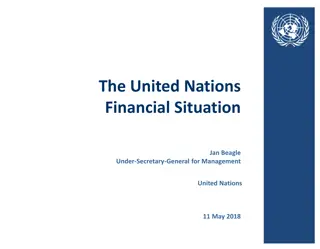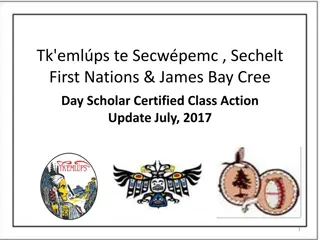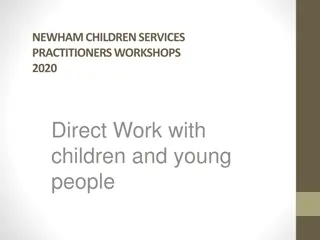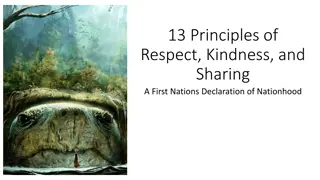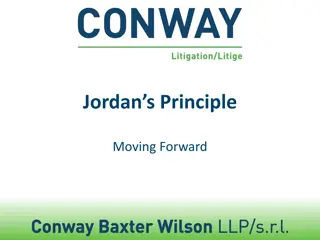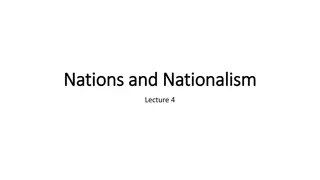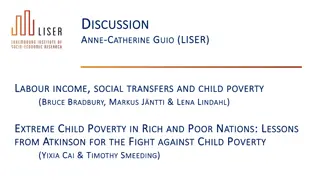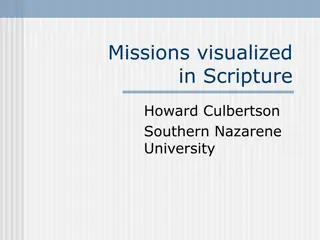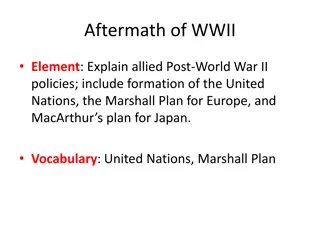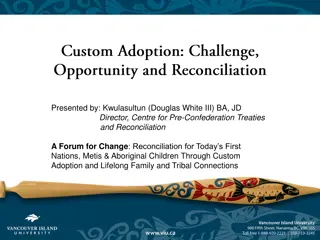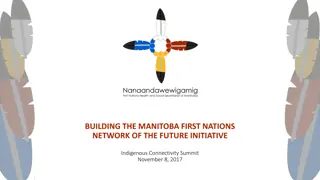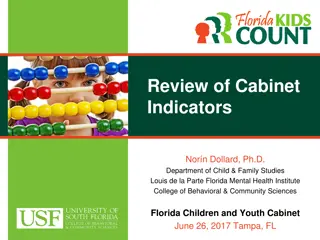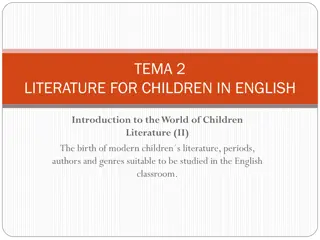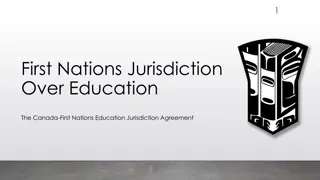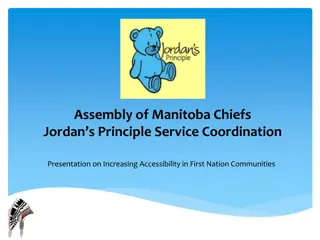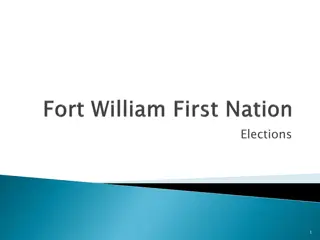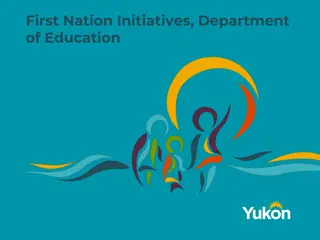Empowering First Nations Entrepreneurs
Empowering First Nations Entrepreneurs is a program by OFNEDA, a Canadian economic development organization, providing guidance and support to Indigenous entrepreneurs. The initiative matches Indigenous partners with experienced volunteer advisors to enhance capacity-building and facilitate communit
0 views • 28 slides
Conventions for Referring to Indigenous Peoples in Canada and the USA
This article outlines guidelines for referring to Indigenous Peoples, emphasizing specificity and respect for preferred names and terms. It discusses the importance of capitalizing terms related to Indigenous Nations and cautions against using terms implying colonial possession. The use of terms lik
1 views • 24 slides
Empowering Indigenous Voices in South Australia
Explore the journey of South Australia in recognizing and empowering Indigenous voices through various initiatives like the Aboriginal Representative Body Bill and the First Nations Voice Act. Witness the historical agreements and committees established to uphold the rights and representation of Fir
4 views • 13 slides
Regional Education Agreement Costing Tools Presentation
Presented by Bram Lerat, Khrystyna Orobets, and Ronda Ziakris for the Assembly of First Nations, this presentation discusses tools available for First Nations education costing studies, including inclusive education and transportation cost models. The session covers key elements of cost studies and
1 views • 26 slides
Indigenous Services Canada: Emergency Management in First Nations Communities
Indigenous Services Canada plays a vital role in emergency management for First Nations communities through various programs and initiatives. These programs focus on strengthening resiliency, preparedness, response, and recovery in the face of hazards and emergencies. The department collaborates wit
2 views • 18 slides
Understanding the Purpose and Origin of YESAA Legislation
YESAA, the Yukon Environmental and Socio-economic Assessment Act, was developed in collaboration with Yukon First Nations to ensure environmentally and socially responsible project assessments. The Act, passed in 2003, aims to protect environmental quality, heritage resources, and the well-being of
3 views • 19 slides
Promoting Children's Rights in Education for Scotland's Learners
Raise awareness about Children's Rights, the United Nations Convention on the Rights of the Child, and how to embed them in education. Explore the importance of developing a culture that upholds rights-based practices and supports children in claiming their rights. Reflect on professional standards
1 views • 26 slides
Overview of the United Nations: Mission, Membership, and Impact
The United Nations, established in 1945 with headquarters in New York City, is an international organization comprising 193 Member States. Guided by its founding Charter, the UN addresses various global challenges such as peace, climate change, human rights, and more. Through its bodies and committe
0 views • 21 slides
Understanding the League of Nations: Good Idea or Not?
The League of Nations, established after WWI, aimed to promote peace through collective security and cooperation among nations. It faced challenges due to limited powers and the attitudes of key member countries. Despite its intentions, the League ultimately struggled to prevent future conflicts.
0 views • 9 slides
Test Your Knowledge: The Big Children's Rights Quiz
Test your knowledge of children's rights with "The Big Children's Rights Quiz." The quiz includes true or false questions related to the United Nations Convention on the Rights of the Child, government responsibilities, the importance of rights, and the concept of Duty Bearers. Explore these thought
0 views • 24 slides
First Nations Attack on Fort Michilimackinac 1763: Causes, Tribes, and Aftermath
The First Nations' attack on Fort Michilimackinac in 1763 was triggered by British actions that disrupted their way of life. The Ojibwe, Odawa, Potawatomi, Ottawas, and Hurons were involved in the attack, led by Chief Pontiac. Following the attack, the British did not rebuild the fort but establishe
1 views • 7 slides
Understanding Children's Rights and the Role of the Children's Commissioner for Wales
Children and young people up to 18 years are entitled to rights under the United Nations Convention of the Rights of the Child (UNCRC). This agreement aims to protect children and ensure they are happy, healthy, and safe. It covers topics such as the role of the Children's Commissioner for Wales, Sa
3 views • 10 slides
Understanding Jordan's Principle and Its Impact on First Nations and Inuit Children in Canada
Jordan's Principle was named in memory of Jordan River Anderson, a young boy whose tragic story led to the establishment of a legal requirement ensuring access to services for First Nations and Inuit children in Canada without delays or disruptions. This principle aims to prevent situations where ch
0 views • 9 slides
Understanding the Impact of Parental Alcohol Problems on Children
Children living with parental alcohol problems often face challenges that can have lasting effects on their well-being. This seminar highlights the need for support and courage for these children and discusses the implications for practitioners. It also sheds light on the hidden population of childr
0 views • 14 slides
Enhancing First Nations Governance through the First Nations Elections Act
The First Nations Elections Act (FNEA), developed between 2008 and 2011, addresses weaknesses in the Indian Act election system by offering an optional framework for First Nations governance. Key components include four-year terms, common election days, court appeals, defined offenses, and opting ou
0 views • 14 slides
Technical Working Groups in Indigenous Housing and Infrastructure Development
National and regional technical working groups play vital roles in advancing housing and infrastructure development among Indigenous communities in Canada. Examples include the Ontario First Nations Technical Services Corporation (OFNTSC) and the First Nations Technical Services Advisory Group Inc.
1 views • 19 slides
Understanding Orange Shirt Day & First Nations Heritage
Lend your support to Orange Shirt Day as a tribute to First Nations children who suffered in residential schools. Learn about the resilient spirit of First Nations families and their rich cultural traditions.
0 views • 13 slides
Reforming Income Assistance for First Nations: Building Towards Self-Determination
Income Assistance Reform for First Nations aims to address the longstanding gaps in the current program, focusing on enhancing self-determination and support for thriving communities. The initiative involves a co-development process led by First Nations to make the program more responsive to their u
0 views • 9 slides
United Nations Financial Situation Analysis
This analysis provides insights into the financial status of the United Nations as of various dates in 2016, 2017, and 2018. It includes data on assessments, payments, outstanding dues, cash on hand, and the number of member states paying in full. Charts visualize the regular budget assessment statu
0 views • 24 slides
Update on Tk'emlps te Secwepemc, Sechelt First Nations & James Bay Cree Day Scholar Certified Class Action
This update provides information on the ongoing negotiations and discussions between Tk'emlps te Secwepemc, Sechelt First Nations, James Bay Cree, and the Canadian government regarding the Day Scholar Certified Class Action. Minister Bennett appointed a Ministerial Special Representative to facilita
0 views • 9 slides
Direct Work Strategies for Children and Young People: Newham Children Services Practitioners Workshop 2020
Explore the fundamentals of direct work with children and young people in the Newham Children Services Practitioners Workshop 2020. Discover the purpose, planning, and application of direct work, focusing on outcomes and challenges. Learn to apply a systemic and restorative approach, utilizing solut
0 views • 18 slides
Principles of Respect, Kindness, and Sharing: A First Nations Declaration
In this declaration, the author emphasizes the responsibility of First Nations as caretakers of their ancestral lands. It discusses the historical exclusion of First Peoples in the formation of Canada and calls for the recognition and preservation of Indigenous rights and sovereignty. The text highl
0 views • 16 slides
Jordan's Principle: Advocating for First Nations Children's Rights
Jordan's Principle is a vital advocacy tool aimed at ensuring equitable access to necessary services for First Nations children, emphasizing prompt resolution of jurisdictional disputes. Originating from the story of Jordan River Anderson, its implementation has faced challenges and legal battles. C
0 views • 21 slides
Understanding Nations, Nationalism, and Their Emergence: A Comprehensive Overview
Explore the concept of nationhood, the evolution of nationalism, and the intricate relationship between cultural and political identities. Delve into the emergence of nations, the definition of a nation, and the complexities of cultural nations. Uncover historical examples, such as the Polish-Lithua
0 views • 15 slides
Cross-National Variation in Child Poverty and Income Distribution
Explore the factors influencing child poverty across nations, focusing on income distribution and the impact of social transfers. Analyze the characteristics of low-income households with children and the effectiveness of different transfer programs. Gain insights into extreme child poverty in rich
0 views • 22 slides
Biblical Missions: A Call to Bless All Nations
Explore the Scriptural basis of missions and the call to bless all nations as illustrated in Genesis, Exodus, and various letters. Discover the significance of being children of Abraham and the responsibility that comes with blessings.
0 views • 17 slides
Post-World War II Policies: United Nations, Marshall Plan, and MacArthur's Plan
Following the aftermath of World War II, allied nations implemented various policies such as the formation of the United Nations, the Marshall Plan for Europe, and MacArthur's plan for Japan. Post-war Europe faced severe devastation, leading to the need for international peacekeeping efforts and eco
0 views • 38 slides
Addressing Intergenerational Crisis Through Custom Adoption and Legal Recognition
The presentation emphasizes the importance of recognizing ancestral laws and customs of Aboriginal peoples in addressing the intergenerational crisis faced by First Nations, Métis, and Aboriginal children. It explores the history of custom adoption, Indigenous traditions, and legal provisions. Focu
0 views • 28 slides
The Divine Narrative: Nations, Jubilee, and History - Reflections on God’s Sovereignty
Explore the intertwining threads of biblical prophecies, the significance of Jubilee cycles in Israel, and historical milestones, all illustrating God's divine plan for nations. From the ancient testimonies of Israel to modern-day reflections of Jubilee observances, witness the grand tapestry of God
0 views • 15 slides
Connecting Manitoba First Nations: Building a Path to Digital Future
The Manitoba First Nations Network of the Future Initiative aims to bridge connectivity gaps by providing fiber optic and wireless access to schools, healthcare facilities, band offices, and residences. Through tiered designs, thousands of residents and households will gain internet connectivity, fo
0 views • 19 slides
Disability Employment Reform Presentation by Kellie Spence - Better Together Connecting for First Nations Employment
Group Manager Kellie Spence presents on the Disability Employment Reform, focusing on improving employment outcomes for First Nations peoples with disabilities. The presentation covers key topics such as program changes, market strategy, and current statistics, highlighting the need for a new specia
0 views • 16 slides
Review of Children and Youth Cabinet Indicators in Florida
The Children and Youth Cabinet in Florida adopted six key measures as benchmarks in 2017. These indicators cover areas such as low birthweight babies, children not in school readiness programs, children living in poverty, infants and toddlers without health insurance, and children under 12 at first
0 views • 10 slides
Evolution of Children's Literature in English: From Alice to Modern Times
Explore the birth of modern children's literature starting with the publication of "Alice's Adventures in Wonderland" in 1865 by Charles Dodgson (Lewis Carrol), marking a shift towards entertaining and engaging literature specifically for children. Prior to this, children mainly read folklore and ad
0 views • 35 slides
Understanding First Nations Education Governance Agreements
Explore the Canada-First Nations Education Jurisdiction Agreement and its significance, including the framework, funding, and key agreements with British Columbia. Learn about the self-government rights of Indigenous peoples and the importance of sectoral agreements in education governance.
0 views • 37 slides
Increasing Accessibility in First Nation Communities: Jordan's Principle Service Coordination
The Assembly of Manitoba Chiefs led an initiative to address discrimination against First Nations children and fully implement Jordan's Principle. The Keewaywin Engagement focused on creating a regional response to ensure access to essential services. The final report outlined recommendations for en
0 views • 20 slides
Understanding First Nations Elections in Canada
First Nations governments in Canada are formed by chiefs and councillors who make decisions on behalf of their communities. Elections can be held in different ways, such as under the Indian Act, through community leadership selection processes, or pursuant to self-government agreements. The process
0 views • 13 slides
Improving First Nation Infrastructure and Housing through Fiscal Management Act Model
The presentation at the AFN National Housing and Infrastructure Forum in October 2017 highlighted the challenges faced by First Nation communities in developing sustainable infrastructure. The current system is inefficient, prompting the exploration of alternatives like the First Nations Fiscal Mana
1 views • 9 slides
Addressing First Nation Initiatives in Yukon: Education & Cultural Preservation
Explore the significant role of the ADM position in First Nation Initiatives, historical context, and cultural efforts in Yukon. Learn about the initiatives to improve education outcomes, integrate First Nations context in the system, and preserve cultural identity. Understand the challenges faced b
1 views • 17 slides
Challenges in First Nations & Aboriginal Housing Research
The slides touch upon negligence and biases in data collection related to First Nations and Aboriginal housing in Canada. They explore trends in urban Aboriginal homelessness, bureaucratic neglect, and different approaches to Indian-state relations. The content also delves into historical studies on
0 views • 19 slides
Collective Security in International Relations: A Comprehensive Overview
Collective security is a crucial concept in international politics, aimed at maintaining peace and preventing aggression among nations. This system calls for joint action to counter threats to global peace, originating post-World War I with the League of Nations. Based on four key principles, nation
0 views • 8 slides
